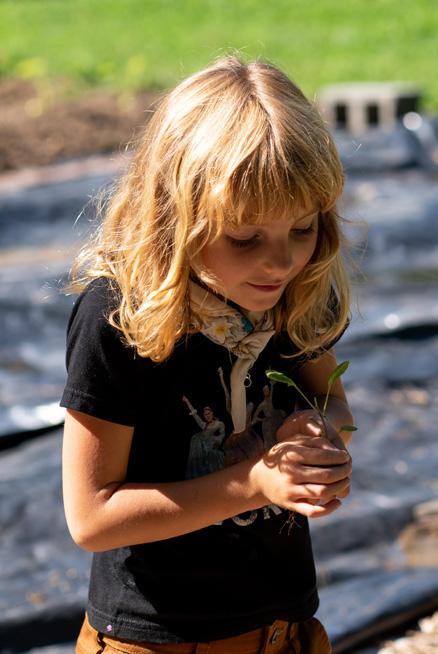
1 minute read
Development of Music in the Appalachian Mountains
Close your eyes and imagine a banjo in the hands of its player. Where are they? What are they wearing? I can guess that many of you conjure a rural scene that might include an older white man, a front porch, red suspenders, a rocking chair, and maybe an old hat. When many people consider the history of bluegrass music, and especially of the banjo, similar scenes come to mind. But the banjo, bluegrass music, and many other popular genres of music actually originated in Africa.
As part of the W.L. Eury Appalachian Collection, from the Special Collections Research Center located in the Belk Library and Information Commons at Appalachian State University, “African American musicians have lived in, contributed to, and influenced Appalachian music commu-
A few questions to ponder: nities since the introduction of the banjo and early work songs and chants through modern blues, jazz, gospel, pop, and rock music.”
Much of the music that we consider to be traditional to the Southern Appalachian Mountains has its roots in Africa. Recently, the Eagle’s Nest Foundation Diversity, Equity and Inclusion


(DEI) Discussion Group took a little dive into the history of the banjo and the development of bluegrass music in the Appalachian region. Following are a few resources from our discussion. (If you have limited time I suggest watching the two Ted Talks and the interview that Rhiannan Giddens, who is one of the founders of the Carolina Chocolate Drops and co-composed the recent opera “Omar” with Michael Abels, did with David Holt. The Rhiannon Giddens “Tiny Desk Concert” is also lovely.)
“The reality is that blackness is the essence of this music.”
Did you feel similarly to Rhiannon when you engaged with these materials? Did you read or hear something that you didn’t know that made you think “what else don’t I know?”
What did you read, hear, or see that surprised you? Did you know that square dancing comes from African-American influence?
How has your perspective changed from reading, listening to, or watching these materials?
In one of the readings, we learned that Black musicians couldn’t record their music, but whites could. How does this affect the passing down of history and the loss of historical fact? Where else do we see this?
Why do you think African Americans have moved away from this kind of music?
What other things do you think they’ve brought to our culture and then moved away from?
What do you feel inspired to do after learning more about the roots of traditional music in Appalachia?


-Kafari and Jake Hoffman
-Jack Dappa Blue Pad cast with Tony Thomas
-Rhiannon
-Carolina Chocolate Drops
Margaret Esposito (Camp, OA, Staff, Trustee) and Christopher Esposito: baby Eloise May born December 9, 2022.












